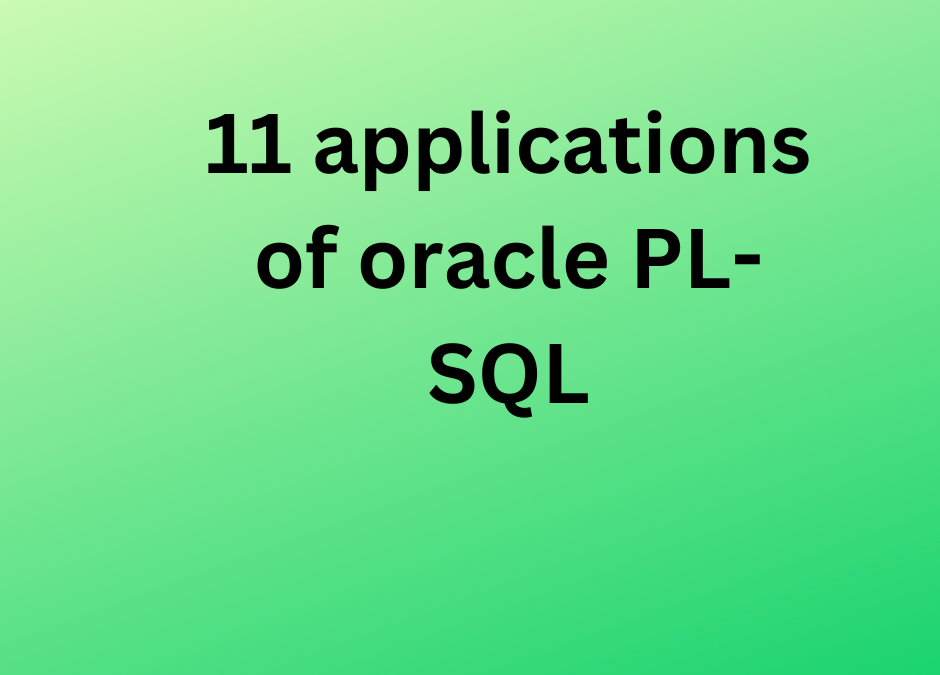Oracle PL/SQL (Procedural Language/Structured Query Language) is a powerful programming language used in Oracle databases. It provides procedural capabilities to SQL, allowing developers to write complex logic and create sophisticated applications. Here are 11 applications of Oracle PL/SQL:
- Stored Procedures: PL/SQL allows you to create stored procedures, which are named blocks of code that can be executed repeatedly. Stored procedures enhance performance by reducing network traffic and providing modular code execution.
- Triggers: Triggers in PL/SQL are blocks of code that automatically execute in response to specific events, such as data modifications (inserts, updates, deletes) on a table. They are used to enforce data integrity, implement business rules, and automate tasks.
- Functions: PL/SQL functions are similar to stored procedures, but they return a single value. Functions can be used in SQL statements and provide a way to encapsulate and reuse code logic.
- Packages: PL/SQL packages are logical groupings of related procedures, functions, variables, and other database objects. They provide a way to organize and modularize code, enhancing code reusability, maintainability, and security.
Oracle is a computer software and hardware company. They are the world’s second largest software maker.we are providing best oracle training in coimbatore with new updated syllabus with 15 years experience facallty.
- Dynamic SQL: PL/SQL supports dynamic SQL, which allows you to construct SQL statements dynamically at runtime. Dynamic SQL is useful when you need to build queries based on varying conditions or user inputs.
- Error Handling: PL/SQL provides robust error handling mechanisms through exception handling. You can catch and handle exceptions to gracefully manage errors and ensure the integrity of your application.
- Batch Processing: PL/SQL is commonly used for batch processing tasks, such as data extraction, transformation, and loading (ETL) processes. It allows you to efficiently process large volumes of data in a controlled and automated manner.
- Data Validation and Transformation: PL/SQL enables you to implement complex data validation and transformation logic within the database. This ensures data consistency and accuracy by enforcing business rules and data integrity constraints.
- Security and Access Control: PL/SQL plays a crucial role in implementing security measures and access controls in Oracle databases. It allows you to define custom security rules and enforce them at the database level.
- Reporting and Analytics: PL/SQL can be used to create custom reports and perform advanced analytics within the database. You can write complex queries, aggregation functions, and calculations to generate meaningful insights from your data.
- Integration with External Systems: PL/SQL supports various interfaces and APIs for integrating with external systems. This enables you to exchange data, invoke web services, interact with file systems, and communicate with other databases or applications.
These are just some of the many applications of Oracle PL/SQL. Its flexibility, performance, and tight integration with the Oracle database make it a powerful tool for building robust and scalable applications.

